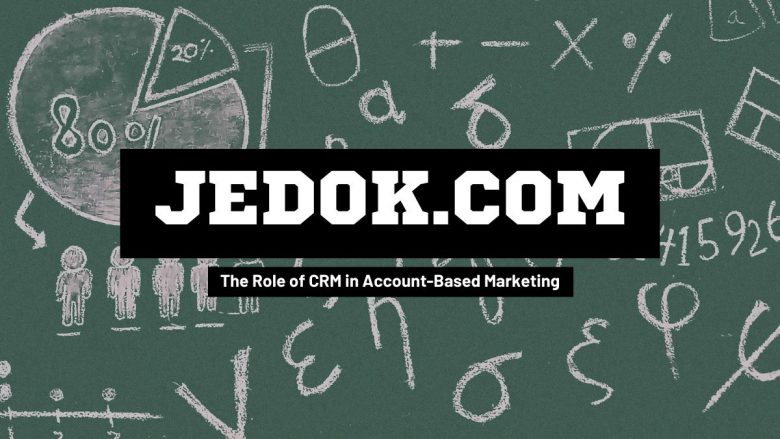
Account-based marketing (ABM) is a popular marketing strategy that focuses on targeting specific accounts rather than casting a wide net. It involves identifying key accounts that are most likely to become customers and creating personalized marketing campaigns to reach them. One of the most important tools in an ABM strategy is customer relationship management (CRM). In this blog post, we will explore the role of CRM in account-based marketing.
1. Identifying Target Accounts
Identifying target accounts is the first and most crucial step in an account-based marketing (ABM) strategy. ABM is a targeted approach to marketing that focuses on specific high-value accounts instead of a wider audience. To identify these target accounts, companies need to use their customer relationship management (CRM) data effectively.
The CRM system provides valuable insights into the behavior, preferences, and needs of customers. Companies can use this data to segment their customers into various categories based on demographics, behaviors, purchase patterns, and much more. By analyzing this data, it becomes easier for companies to identify which accounts offer the most potential value for them.
In addition to identifying high-potential accounts through CRM analysis, companies should also consider other factors such as industry trends and the competitive landscape when selecting their target accounts.
2. Personalizing Your Messaging
Account-Based Marketing (ABM) is a highly targeted approach that focuses on specific accounts rather than casting a wide net like traditional marketing. One of the key factors in successful ABM is personalizing your messaging to appeal to your target audience. This requires utilizing Customer Relationship Management (CRM) data to gain insights into each account’s needs, preferences, and pain points.
Personalization involves tailoring your messaging based on the information you’ve gathered through CRM data. By understanding each account’s unique characteristics, you can create content that resonates with them and speaks directly to their pain points, goals, and challenges. Personalization can take many forms such as using their company name in subject lines or tailoring content based on their industry or job title.
The use of CRM data for personalization can significantly improve your conversion rates and ROI.
3. Measuring the Success of Your Campaigns
Measuring the success of your campaigns is essential to ensure that your marketing efforts are aligned with your business goals. In account-based marketing (ABM), measuring campaign success is made easier with the use of customer relationship management (CRM) tools. These tools allow you to track customer interactions and engagement, providing valuable insights into how well your campaigns are performing.
By leveraging CRM in ABM, you can measure campaign success by tracking metrics such as conversion rates, click-through rates, and engagement on social media platforms. You can also use data analytics tools to gain a deeper understanding of customer behavior and preferences, which can help you create more targeted and effective campaigns in the future.
In addition to tracking campaign performance, CRM in ABM also allows you to monitor customer satisfaction levels throughout the buyer journey. This helps identify areas where improvements can be made and ensures that customers remain engaged and satisfied with your brand.
4. Managing Your Account Relationships
Managing account relationships is crucial for the success of any business. One way to effectively manage these relationships is through the use of a Customer Relationship Management (CRM) system. With the help of CRM, businesses can track customer interactions and engagements, thereby gaining valuable insights into their needs and preferences. This helps in providing an improved customer experience that translates to increased sales.
Account-Based Marketing (ABM) is a marketing strategy that focuses on building and nurturing long-term relationships with high-value accounts. In ABM, CRM plays a significant role in managing these accounts effectively. Through CRM data analysis, businesses can identify ideal customers based on demographics, behavior patterns, and buying history. By doing this, they can tailor personalized messaging and content that resonates with each individual account’s interests and requirements.
Furthermore, CRM assists in tracking account engagement throughout the sales cycle process by monitoring every interaction between prospects or customers and your business.
Conclusion
CRM plays a critical role in account-based marketing. By using CRM data to identify target accounts, personalize your messaging, measure the success of your campaigns, and manage your account relationships, you can create a more effective and focused marketing strategy. If you are considering implementing an ABM strategy, be sure to leverage the power of CRM to achieve your marketing goals.


